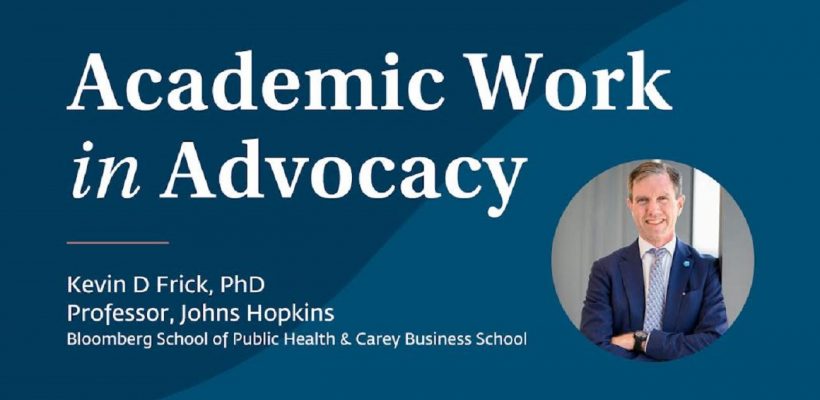
Initiative Webinar: Giving a Voice to Research Findings
3 min readYEREVAN, Armenia — The American University of Armenia (AUA) Open Center for Transformative Health Solutions is continuing to organize a series of Initiative Seminars, which are pivotal meeting places for people in research, education, innovation, business, and society. The seminars address issues challenging humanity, raising questions significant for a sustainable future and relevant to the interests of the audience. The Initiative Webinar hosted on March 4, 2022, featured Dr. Kevin Frick, world-renowned health economist and professor at Johns Hopkins University. He spoke about Academic Work in Advocacy and discussed how professors conducting research can simultaneously engage in advocacy.
Dr. Frick explained how to communicate with non-experts, network with relevant stakeholders, and master anecdotal storytelling to connect with audiences at an emotional level in a way that supplements the abstraction of much research. The speaker also presented examples of how academic researchers have used those strategies for advocacy in the past.
Dr. Frick organized his lecture around the “Action” Model that he has developed, emphasizing the significance of applying ACTION in the context of advocating key findings from the academic research they have conducted. The letters in the word action stand for key concepts of advocacy: Associate, Connect, Tell, Inspire, Orient, and Nourish. He expanded on each and provided useful tips on how to practice these elements in advocacy.
Dr. Frick underscored that when advocating, academics and researchers have to convey a story and repeat it numerous times to multiple people. Considering that most audiences may not be able to dedicate 35-40 minutes to listen to those stories, he elaborated: “Decision-makers in powerful positions will only listen to you for 5-10-15 minutes; so you need to know how to efficiently tell your stories. Really try to engage them, capture their attention, capture their emotions, involve them in a conversation, make it conversational, rather than just lecturing. Stay focused, educate them when necessary, but without sounding like you are lecturing,” he said.
Dr. Frick summarized his talk by emphasizing that research findings don’t speak for themselves, and researchers who want to get involved in advocacy should take the initiative to find relevant people with whom to network, demonstrate warmth and competence, and tell people what steps to take. The lecture was followed by a discussion on how to apply the skills taught in actual practice.
Dr. Frick is a professor at the Johns Hopkins Carey Business School with joint appointments in the Department of Ophthalmology and the Bloomberg School of Public Health’s Departments of Health Policy and Management and International Health. He is a core faculty member of the Hopkins Business of Health Initiative and the Center for Health Services and Outcomes Research. He has served on the Agency for Healthcare Quality and Research Study Section and the National Institute for Nursing Research Advisory Council. As Vice Dean for Education of the Carey Business School, he helped the school achieve initial accreditation with the Association to Advance Collegiate Schools of Business (AACSB), develop online educational offerings, restructure the full-time MBA program, and create a range of experiential learning opportunities.
The Open Center for Transformative Solutions hosted another Initiative Webinar last month on Mentoring — Developing a Transformational Relationship for the Mentor and Mentee featuring the same speaker. The next Initiative Webinar scheduled for April 15, 2022 will focus on COVID-19: The Economic Impact of Managing the Pandemic.
The Open Center for Transformative Health Solutions provides transdisciplinary education and collaborative experiences and stimulates collaborations outside the traditional public health disciplines to develop solutions to complex health problems modern societies face.
The AUA Turpanjian College of Health Sciences works actively to improve population health and health services in Armenia and the region through interdisciplinary education and development of health professionals to be leaders in public health, health services research, and evaluation, health care delivery, and management.
